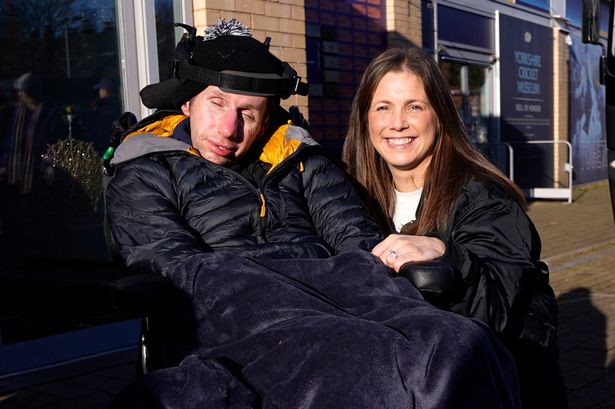Rob’s diagnosis with motor neurone disease (MND) in 2019, at the relatively young age of 38, irrevocably altered the course of his and Lindsey’s lives. This devastating neurodegenerative disease, characterized by the progressive loss of motor neurons that control voluntary muscle movements, embarked them on a challenging journey marked by both profound love and agonizing loss. MND’s relentless progression gradually robbed Rob of his physical abilities, transforming everyday tasks into herculean efforts and ultimately leading to his untimely death just three years later. Lindsey, stepping into the role of caregiver, became Rob’s anchor, providing unwavering support, unwavering love, and a staunch defense against the encroaching limitations of his illness.
The initial shock and disbelief that followed Rob’s diagnosis slowly gave way to a determined acceptance of their new reality. Lindsey’s love for Rob fueled her commitment to ensuring the highest possible quality of life for him throughout the progression of the disease. This commitment translated into countless acts of selfless dedication, from assisting with basic daily functions like dressing and eating to tirelessly researching treatment options and advocating for his needs within the complex healthcare system. As Rob’s physical abilities declined, Lindsey became his voice, his hands, and his legs, navigating the world on his behalf and ensuring he remained connected to the people and activities that brought him joy. This period was undoubtedly marked by immense physical and emotional strain for Lindsey, but her love for Rob propelled her forward, each day a testament to the power of human connection in the face of adversity.
The progressive nature of MND presented a constantly shifting landscape of challenges. As the disease advanced, Rob’s needs became increasingly complex. Initially, the focus may have been on adapting their home environment to accommodate his decreasing mobility, perhaps installing ramps, widening doorways, and acquiring assistive devices. Later, the need for specialized equipment, such as ventilators and feeding tubes, would have become apparent, requiring Lindsey to acquire new skills and medical knowledge to provide the necessary care. This constant adaptation demanded flexibility, resilience, and a willingness to learn and adapt quickly to the ever-changing demands of the illness. Lindsey’s dedication to providing the best possible care meant constantly reevaluating and adjusting their approach, a testament to her strength and commitment.
Beyond the physical challenges, the emotional toll of MND is undeniable. Witnessing the gradual deterioration of a loved one’s physical abilities, their independence slowly slipping away, can be a heart-wrenching experience. The loss of communication abilities, often a consequence of MND’s progression, creates a further barrier, making it increasingly difficult for Rob to express his needs and emotions. Lindsey, bearing witness to Rob’s struggles, would have experienced a complex mix of emotions – sadness, frustration, fear, and perhaps even guilt. Maintaining a positive outlook amidst this emotional turmoil requires immense strength and resilience, drawing on deep reserves of love and hope.
The support network available to both Rob and Lindsey would have played a crucial role in navigating the challenges of MND. Family, friends, and healthcare professionals each contribute in unique ways, offering practical assistance, emotional support, and expert medical guidance. Respite care, providing temporary relief for caregivers, can be invaluable in preventing burnout and allowing Lindsey to recharge and attend to her own well-being. The emotional support offered by loved ones can provide a vital outlet for sharing feelings and anxieties, while the expertise of medical professionals ensures access to the best possible treatments and management strategies. This network of support, though often unseen, forms an essential lifeline for individuals and families facing the challenges of MND.
Rob’s death at the age of 41, just three years after his diagnosis, marked the end of a chapter filled with both profound love and immense sorrow. For Lindsey, the grief process is a deeply personal journey, and the loss of her partner, her confidant, and the person she cared for so devotedly, would undoubtedly leave an indelible mark. The memories of their shared experiences, the challenges they faced together, and the unwavering love that bound them will forever shape her life. While the pain of loss may never fully disappear, over time, the focus may shift to celebrating Rob’s life, cherishing the memories, and finding ways to honor his legacy. The journey through MND, though tragically cut short, serves as a testament to the enduring power of love and the resilience of the human spirit in the face of unimaginable adversity. Lindsey’s dedication stands as an example of the extraordinary strength and compassion that can flourish even in the darkest of times.














